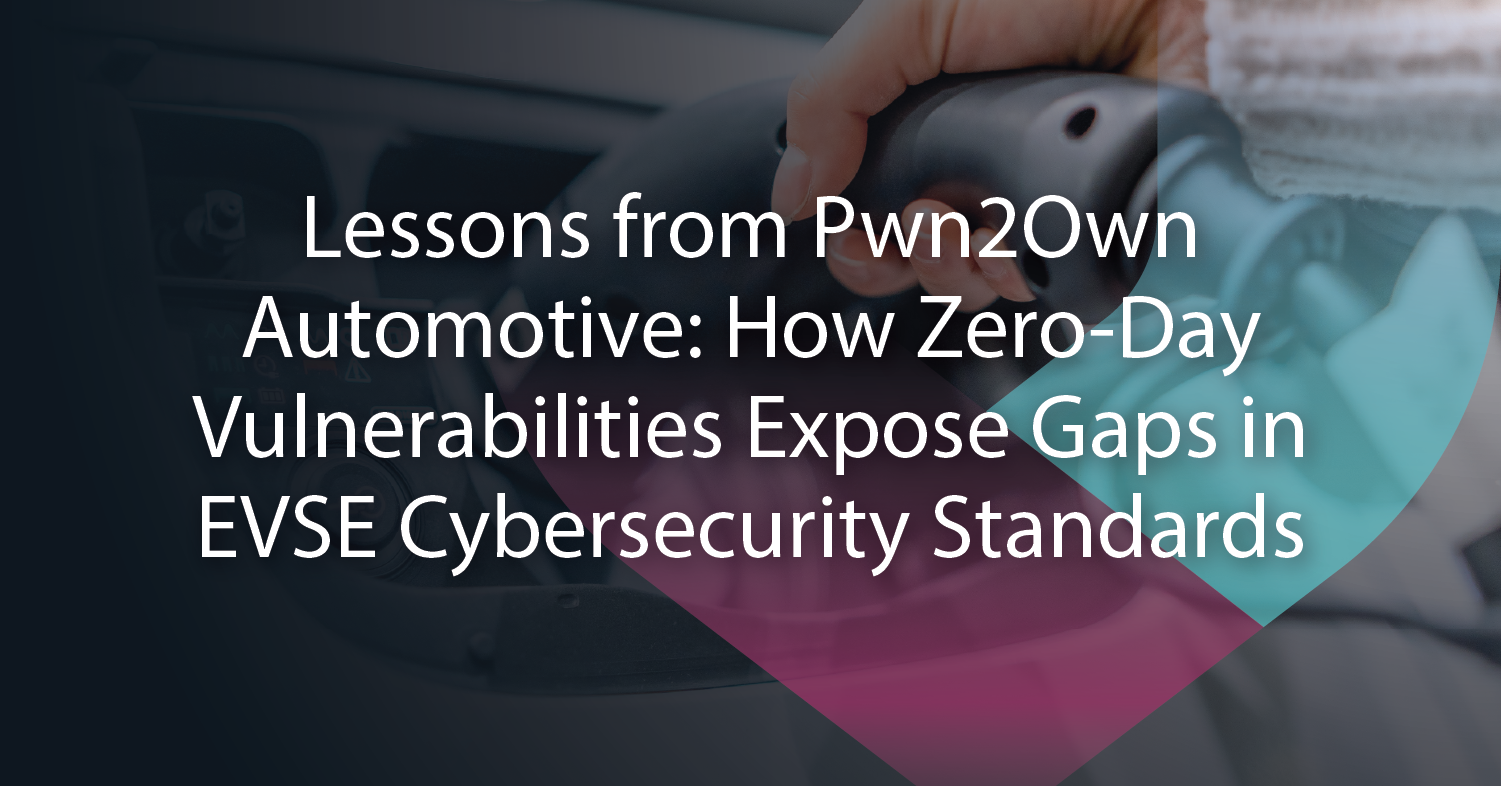
What Instrument Cluster Testing Reveals About CAN Bus Trust and System Resilience
February 3, 2026This article examines how instrument cluster bench testing exposes trust assumptions inherent in CAN-based vehicle architectures. By observing how unauthenticated CAN messages influence cluster behavior, it highlights design considerations that directly impact system resilience, safety, and risk management as automotive connectivity increases.
 VicOne
VicOne
From On-board AI to Physical AI: Why Automotive Cyber Risk Has Entered a New Era
January 30, 2026Modern vehicles are now Physical AI systems, where probabilistic decisions control real-world actions and raise new safety and cyber risks. Securing them requires AI-aware threat modeling, lifecycle governance, and continuous assurance to keep systems safe.
 Ziv Chang
Ziv Chang
Pwn2Own Automotive 2026 Day 3: New Master of Pwn Announced and Other Highlights
January 26, 2026Pwn2Own Automotive 2026 set a new record with 76 unique zero-day vulnerabilities discovered, exposing the rapidly expanding attack surface across SDVs, IVI systems, and EV charging infrastructure. The final day crowned Fuzzware.io as Master of Pwn 2026, with 28 Master of Pwn points.
 VicOne
VicOne
Pwn2Own Automotive 2026 Day 2: EV Chargers Hit Full Throttle
January 23, 2026Day 2 delivered 29 new zero-days, pushing the total to a record 66. Researchers repeatedly compromised Level 2/3 EV chargers and IVI systems using practical flaws like exposed interfaces and command injection. The takeaway: automotive and charging infrastructure attacks are now repeatable at scale—shifting cyber risk from theoretical to immediate operational impact.
 VicOne
VicOne
Pwn2Own Automotive 2026: Uncovering 37 Unique Zero-Days
January 22, 2026Pwn2Own Automotive 2026 Day 1 opened with record-breaking momentum, with researchers successfully compromising infotainment systems, EV chargers, and Tesla interfaces—highlighting how expansive today’s automotive attack surface has become. The surge in entries and chained exploits confirms a clear shift: in the SDV era, automotive cyber risk is no longer isolated to the vehicle, but systemic across the entire ecosystem.
 VicOne
VicOne
Pwn2Own Automotive 2026: Turning Zero-Day Discovery into Automotive Foresight
January 15, 2026Pwn2Own Automotive 2026 exposes critical zero-day vulnerabilities in software-defined vehicles before they escalate into real-world business and operational risk. By ensuring zero-day vulnerabilities move from exposure to resolution, the event transforms discovery into Automotive Foresight—helping organizations stay ahead of risk before it reaches the road.
 VicOne
VicOne
Thousands of Vehicles at Risk: Zero-Day Vulnerabilities Reveal a Critical Blind Spot in Automotive Cybersecurity
December 17, 2025We analyze the multiple zero-day vulnerabilities discovered in popular aftermarket automotive devices, map them to the Automotive Threat Matrix, and illustrate how attackers could exploit these critical flaws in real-world scenarios.
 CyberThreat Research Lab
CyberThreat Research Lab
When Security Becomes a Single Point of Failure: Lessons for Car OEMs
December 12, 2025An analysis of the recent immobilization incident affecting a luxury car brand: what happened, what likely didn’t, and how car manufacturers can prevent anti-theft systems from compromising vehicle availability and safety.
 CyberThreat Research Lab
CyberThreat Research Lab
Understanding the Vulnerabilities in EV Charging Communication: Security Insights and Broader Implications
December 4, 2025We examine the electric vehicle (EV) charging communication vulnerabilities revealed at the recent DEF CON 33, highlighting their mitigations and broader industry impacts.
 VicOne
VicOne
From Pwn2Own Automotive: How Zero-Day Vulnerabilities Expose Gaps in EVSE Cybersecurity Standards
November 28, 2025We examine the vulnerabilities discovered in an EV charger during Pwn2Own Automotive to reveal where EVSE cybersecurity standards fall short and why stronger, unified measures are critical for securing the charging infrastructure.
 VicOne
VicOne
How the Euro 7 Emissions Regulation Redefines Compliance for the Automotive Industry
November 20, 2025Euro 7 links emissions integrity to cybersecurity. In this blog, we show how a differentiated, tiered TARA provides a practical path to compliance with Euro 7’s anti-tampering mandates through minimal updates to existing UN R155 frameworks.
 VicOne
VicOneNot If, But When: Cybersecurity Risks in EVSE Infrastructure
November 14, 2025VicOne and the American Center for Mobility (ACM) examine the evolving threat landscape of electric vehicle supply equipment (EVSE) and outline strategies to secure the grid edge.
 CyberThreat Research Lab
CyberThreat Research Lab
